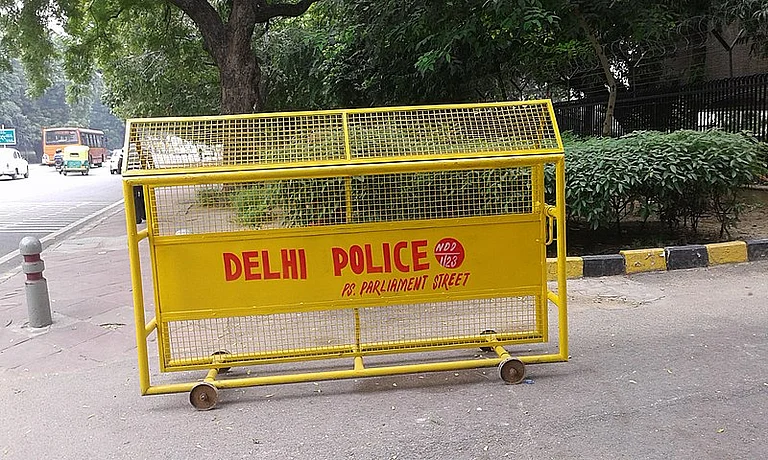On February 13, a man that the whole of India should be proud of was beaten black and blue and left profusely bleeding at Mumbai airport by a bunch of mindless religious hooligans, in the name of religious orthodoxy. Today, thanks to a lacuna in our laws, he is threatened by an even worse fate. Asghar Ali Engineer, one of the most courageous and enlightened commentators on communal affairs in the country today, was returning from Bhopal to Mumbai via Indore. At Indore, the plane was boarded by Syedna Mohammad Burhanuddin, the head of the Dawoodi Bohra community to which Engineer belongs. The Syedna considers Engineer an apostate and threat to the community because he has been urging Dawoodi Bohras not to pay taxes to the Syedna and to break the stranglehold his family has on all religious rituals. He therefore declared a social boycott on Engineer some years back. So it was hardly surprising that on the plane the Syednas entourage vied with each other #in abusing Engineer, to demonstrate their loyalty to their supremo. Worse followed in Mumbai, where a large number of Bohra sycophants had gathered to greet their leader. Since mere abuse had by now lost its savour, they beat Engineer up. The police intervened to save him but that left the blood lust of the crowd unsated. It therefore proceeded to Engineers office and home and smashed up everything in them that it could find.
This disgraceful episode shows up, for perhaps the millionth time, one of the most disreputable aspects of Indias so-called secular democracy. Any charlatan who invokes religion, for no matter what purpose, immediately rises above the law of the country. At Indore, the Syedna was late in getting to the airport. So the plane was held up to accommodate his time-table, despite the vociferous protests of the passengers. In Mumbai, the police intervened to save Engineer but made no arrests from among the Syednas flock.
The supineness of the Maharashtra police may be one reason why the Dawoodi mafia has moved to the next stage of persecution. Immediately after Engineer was beaten up, the Syednas public relations machine cranked out the story that his followers had been incensed because Engineer had physically tried to prevent the Syedna from boarding the plane and had abused him using foul language. The defence was a palpable fraud from the start, for Engineer had been alone while the Syedna had his retinue. But the Dawoodi chief has followed it up by sending his secretary to Indore to lodge a criminal case against Engineer of assault on the person of the Syedna.
At first sight, this might look like a continuation of the lame attempt to divert criticism for what happened in Mumbai but its real motive is infinitely more sinister. Armed with this First Information Report (fir), the Indore police will shortly descend upon Mumbai to arrest Engineer and take him to Indore. There he will be remanded first to police and then, if enough money has been passed around, to judicial custody. There he will rot, awaiting trial, till human rights groups and Engineers friends and relatives are able to bail him out. Engineer is not a young man. The tension and anxiety, not to mention physical stress, that this will generate will impair his health and could even kill him. Were that to happen, the police and legal system would have the dubious honour of becoming the Syednas unpaid assassins.
My purpose in protesting against this is not just to save a man I profoundly respect but to plead with all human rights groups to join together and end the anomaly in the law that makes it possible for heartless individuals, aided by unscrupulous lawyers, to turn the state itself into an instrument of terror and oppression. The lacuna is the provision, or lack of one, that makes it possible for the police of any state to go and make an arrest in any other. All it has to do is to inform the police in the state where it intends to make the arrest. This makes it possible for anyone who wishes to oppress an enemy or rival, to lodge a criminal fir in a distant state, get the victim dragged there in handcuffs, thrown into jail and left there till his desperate relatives are able to somehow bail him out. Worse still, this opens an avenue for corrupt police officials to take up contracts for persecuting people.
Lest this sound fanciful, let me refer to a detailed report carried by a Delhi newspaper about two months ago about a young businessman from an affluent family in Jaipur, who was arrested and dragged away, coincidentally also to an Indore jail, by the MP police because he had dared to marry the daughter of a former high official of the MP government against his will. The latter had registered a case against him of kidnapping. The Indore police had descended on Jaipur and dragged the man away. Despite every effort by his family, he had been forced to spend months in jail in Indore. Released on one charge, he would promptly be re-arrested on another. When the news report appeared, the family had been persecuted in this way for over two years and had been virtually ruined.
Such abuses can be stopped by making one change to the existing laws. This is to require the accused to be produced in a court of law before a judge in the state where he resides for a preliminary hearing and to put the onus on the judge #to decide whether there is enough of a prima facie case against him to warrant his being moved to the state where the crime #is alleged to have been committed. This one judicial safeguard, akin to the process of extradition, will stop such a deliberate abuse of criminal procedure dead in its tracks.























